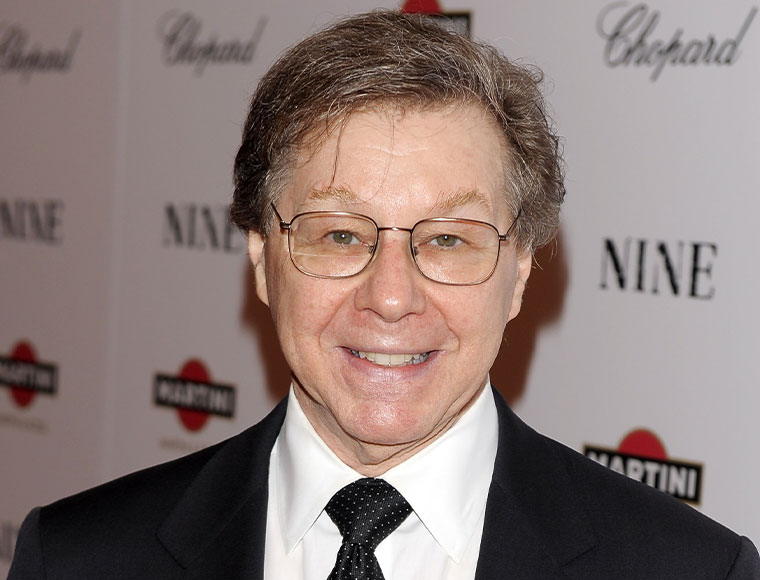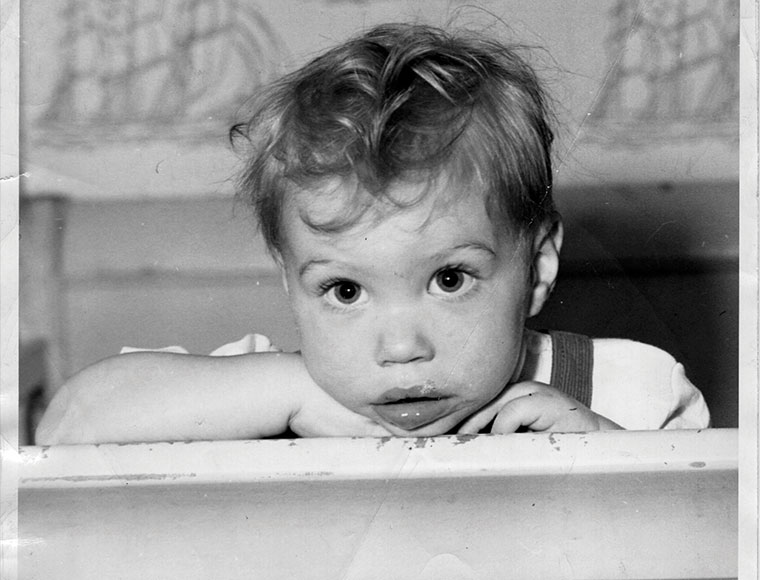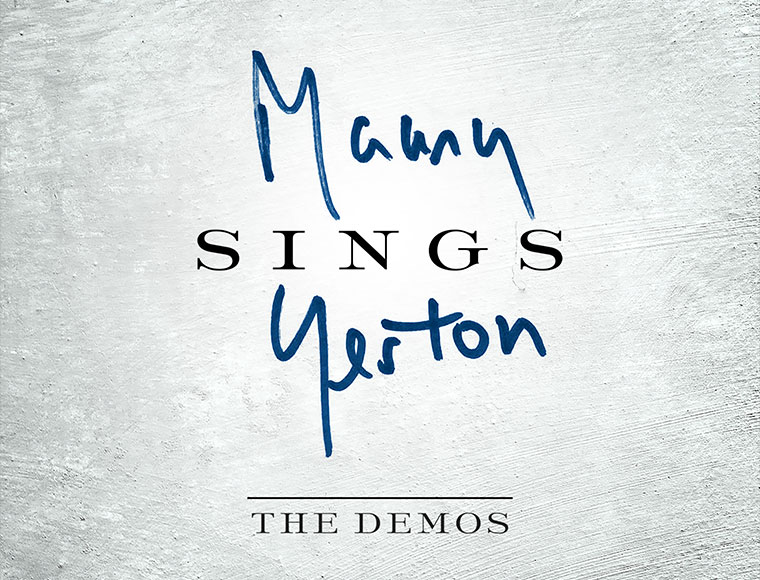Theater people know their leading ladies and leading men. True theater people know their librettists and composers. From Richard Rogers and Oscar Hammerstein to Alan J. Lerner and Frederick Loewe, from Leonard Bernstein to Stephen Sondheim, Jerry Herman Stephen Schwartz and Lin Manuel Miranda. The name Maury Yeston also belongs on that list.
Yeston, the man behind Tony Award winners “Nine: The Musical” and “Titanic,” as well as “Grand Hotel,” “Death Takes A Holiday” and what has come to be known as the other “Phantom of the Opera,” a hit at the now permanently closed Westchester Broadway Theatre, has had a fantastic career in the theater. To underscore this, we have two recently released albums — “Maury Sings Yeston” and “Anything Can Happen in the Theater: The Musical World of Maury Yeston” (both on PS Classics). The title of the first says it all. It’s a collection of demo recordings of Yeston performing songs from his canon. The second is the cast recording of the off-Broadway musical celebrating Yeston’s theatrical accomplishments. Yeston was kind enough to answer a few questions about his work earlier this year:
Maury, I’d like to begin by wishing you a belated happy 75th birthday.
“Thanks. I’m touched and honored to have had two new albums welcomed by the public during this time…and grateful for the folks who have enjoyed my work.”
On the double-disc set “Maury Sings Yeston” (PS Classics), listeners have the chance to hear recordings of you performing your compositions over a 40-year period, which you describe in the liner notes as “…personal private notes. They are my work product and process recorded often at the earliest stages of writing and were never meant to see the light of day.” Now that the album is out there, what does it mean to share them with your audience?
“It means a great deal to me. First, because it’s the greatest privilege in the world for an artist to be received by the public — for the audience to be moved or entertained by one’s work and to make a connection to others all over the world. To have had the experience of standing waiting to cross the street and hearing a stranger next to you humming one of your tunes…is indescribable.”
In addition to “Maury Sings Yeston,” the original off-Broadway cast recording of the musical revue “Anything Can Happen in the Theater: The Musical World of Maury Yeston” (PS Classics), conceived and directed by Gerard Alessandrini, was also released in 2020. Alessandini has been spoofing you since his first installment of “Forbidden Broadway.” Is that how you came to work together on “Anything Can Happen in the Theater”?
“I’ve known and loved and been a friend of Gerard’s since the early ’80s when he was a participant for a number of years in the BMI Music Theatre Workshop — over which I presided. He continually would bring in gifted material, new theatrical songs for promising new shows he was writing. One day he brought in a hilarious spoof of a well-known Broadway song, and it brought down the house. He loved doing it and we all encouraged him to continue.
As soon as ‘Forbidden Broadway’ became a smash, both Stephen Sondheim and I immediately began the practice of sending Gerard our scores to any of our new shows just as soon as they opened. That process still continues. When Gerard branched out to directing, he really showed his true mettle, directing a regional production of my ‘In The Beginning’ in Maine and, of course, ‘Anything Can Happen…’ in New York City.
Among the most fascinating aspects of your creative career are musicals such as “Nine,” “Phantom” and “Grand Hotel,” which were based on movies. Would you please say something about what is appealing about that transformation process?
“Film, theater and music all share a common remarkable and magical characteristic — they all unfold in time. They create mood, touch the emotions, have the capacity to describe locations, vague sensations, intimations, yearnings —wordlessly. This has always been true in music — whether it’s (Franz) Schubert creating the sound of a galloping horse on the piano to accompany a song about a father riding desperately to the doctor with his sick child in his arms; or Claude Debussy making you smell the salt air and feel the undulating waves of the sea with only the sound of an orchestra; or Richard Strauss musically showing you Don Quixote passionately charging against a windmill.
“I loved creating the beach at the beginning of the second act of ‘Nine: The Musical,” by simply alternating two chords in the orchestra that simulated the slow wafting of the waves, gently rolling in and inexorably retreating back to the sea along the beach. Film has always seemed to me to be a natural medium that provided me an impetus from which I could gain inspiration to paint a story onstage with music.”
Do you have an all-time favorite recorded rendition of one of your songs, either from a cast recording or an album by a particular performer?
“Yes, I do. If I can name a few…”
…of course, please do.
“Rebecca Luker’s ‘Losing Roberto,’ Raul Julia’s ‘Guido’s Song,”’Anita Morris’ ‘Call From the Vatican,’ Elena Shaddow’s demo of ‘More and More,’ and Brian d’Arcy James and Martin Moran’s ‘The Proposal.’”
Over the years, your songs have been performed by Raul Julia, whom you mentioned, as well as Barbra Streisand, Betty Buckley, Antonio Banderas, Laura Benanti, Daniel Day Lewis, Nicole Kidman and Sophia Loren, to name a few. Is there someone who has yet to perform a composition of yours that you would love to hear sing one?
“Johnny Mathis, Norah Jones, James Taylor, Andrea Bocelli, Alicia Keys, Carol Burnett, Taylor Swift, Alison Krauss, Diana Krall, Bonnie Raitt and Julie Andrews.”
Is there someone deceased who never had a chance to sing one of your compositions that you wish had done so?
“Lena Horne, Edith Piaf, Rex Harrison, John Lennon, John Denver, Robert Morse, Ella Fitzgerald, Whitney Houston and Natalie Cole.”
Your previously mentioned adaptation of “Phantom” was a success when it played the Westchester Broadway Theatre, which was recently shuttered due to Covid-19. Would you please say a few words about your experiences with Westchester County theatergoers and what having that audience means to you?
“Westchester Broadway Theatre has always been among my favorite audiences of my career. The audiences at WGT all have gained knowledge and experience from habitually going to theater. And if they laugh, then you know it’s funny. If they are moved, then you know you’ve connected and you’ve touched someone, and if they applaud, it’s the most genuine, selfless gesture and the greatest gift any artist can ever receive.”
For more, visit mauryyeston.com.






